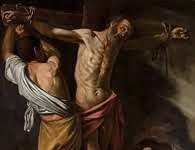For the past week, a lot of my family’s television watching has centered around EWTN and Raymond Arroyo’s coverage of what is going in Rome. (Side note: isn’t it impressive that Raymond Arroyo looks exactly the same as he did eight years ago?) My youngest brother (he’s ten) is constantly wondering who will be the new Pope. “It’s such a big thing,” he says. “We need to have our leader.” So we watched ETWN and prayed and kept waiting.
Shortly after Pope Benedict announced that he would be resigning, I saw a list on the Internet titled “things I will do while there is no pope.” After a list of digs at the Catholic Church in general, the author of this list, showcasing his or her incredibly genius wit, added something along the lines of “and basically go right on doing everything that I normally do, because this does not affect me at all.” Overall, it was a pretty sad thing, but the last item was quite interesting. The average atheist might very well state that whether or not there is a pope is of absolutely no importance to him. After all, the average atheist doesn’t go to Mass, read papal encyclicals, adhere to papal teachings, etc. It is a difficult thing for me to fathom, but really, some people are totally unbothered by the fact that the pope resigned.
If there was no pope, though, it is likely that these same persons would, in fact, notice. For one thing, if there was no pope, there wouldn’t really be a Catholic Church. Without a single person charged with holding everyone together, factions would form; the church would split again and again and again, Protestant revolution style, except that there would not really be an original Mother Church left. Everyone would (finally) be free to worship as he or she chose. Clever atheists would probably be free to live their lives based on scientific facts. Except, whoops, yeah, the Catholics kinda spearheaded the scientific frontier for a long, long time. Not just any old Catholics either, but priests and monks. If there were no pope, and so no Catholic Church, those guys wouldn’t have been in a position to make their discoveries. There would be none of the charitable works that are funded by the Catholic Church. There would be a lot fewer hospitals.
Strictly speaking, if those Catholic Spanish monarchs (you know, the really, really evil ones) hadn’t funded dear old Christopher Columbus’ voyage, we might all still be crowded into the Old World, which means that most of us wouldn’t even be here. So we have all these things that came about as a result of the Catholic Church. Without a pope, that Church falls apart, and none of that happens. Not too shabby a role for a guy who is thought to be so useless that his resignation does not in any way affect the majority of the world.
This does, however, beg the question, that if the pope is so completely useless, then why all the hatred? What is the purpose of verbally abusing an eighty-year-old man whose role is antiquated and useless? The only logical answer is that he is not half as useless as many would like to believe. At any rate, the person who wrote the list was affected enough to be inspired to write a list about how the popes resignation had nothing to do with her.
In The Lord of the Rings, there are no references to God or to Christianity. Nonetheless, God is very present in Middle Earth. His influence is woven through the story inextricably. Without the existence of an ultimate Good fighting the ultimate Evil, there isn’t much of a story. The quest to save Middle Earth is very much a spiritual one. The hardest battles are not fought by armies, but inside of each of the characters as they try desperately not to be corrupted by the ring.
The average atheist, and the writer of the list which I mentioned, has the ability to go through his or her life and never acknowledge the influence of the Pope or the Church or even God. He or she cannot, however, avoid actually being influenced by those things.
As the papacy of Pope Francis begins, it is interesting to look at the way that he does affect the world. Why do we, as Catholics, breathe a sigh of relief that we have a pope? Why do we watch and wait and worry a bit until we are once again secure in the knowledge that someone is in charge? Why do tens of thousands of people cram themselves into St. Peter’s square and stand for hours in the cold and rain? People don’t do those things about worthless traditions, only the ones that are really important, the ones that really, truly affect us. Habemus Papam, and he really does matter.











